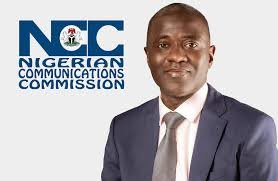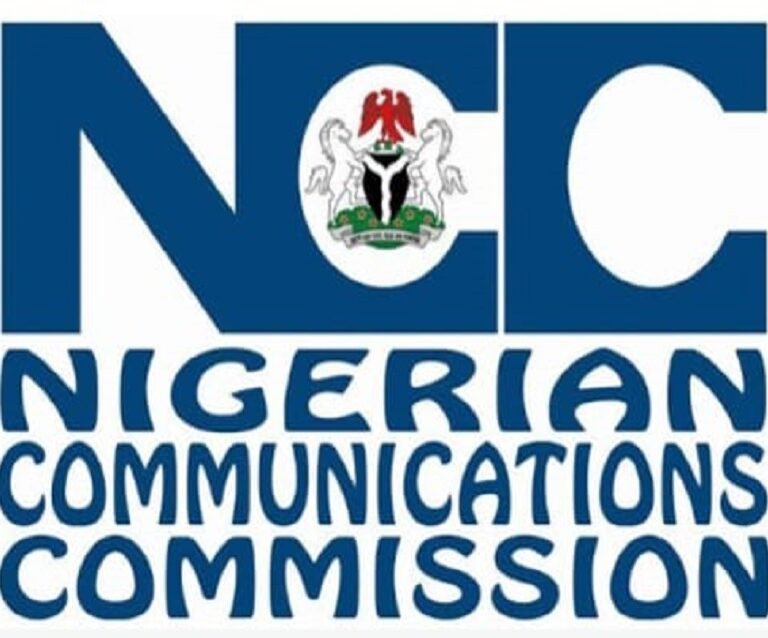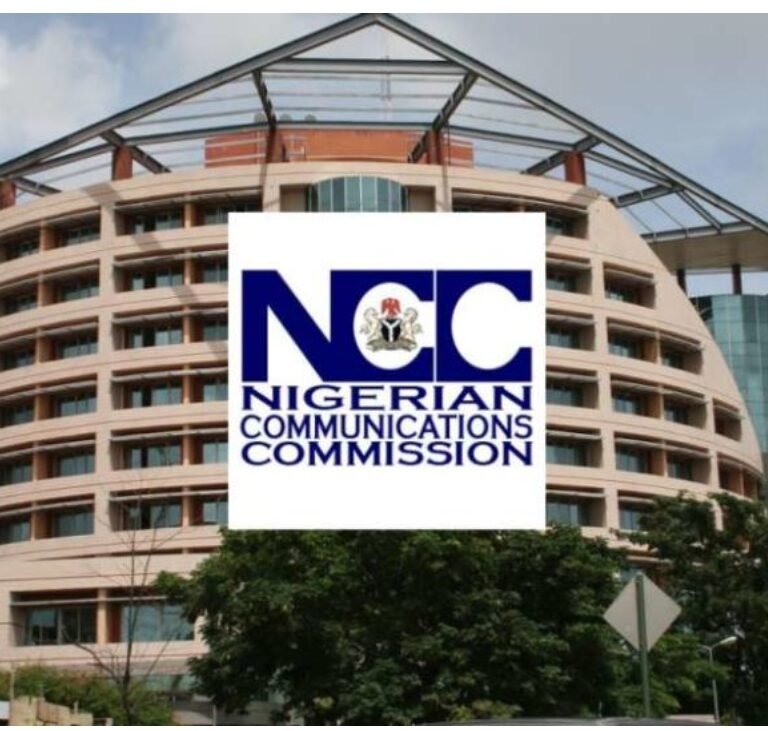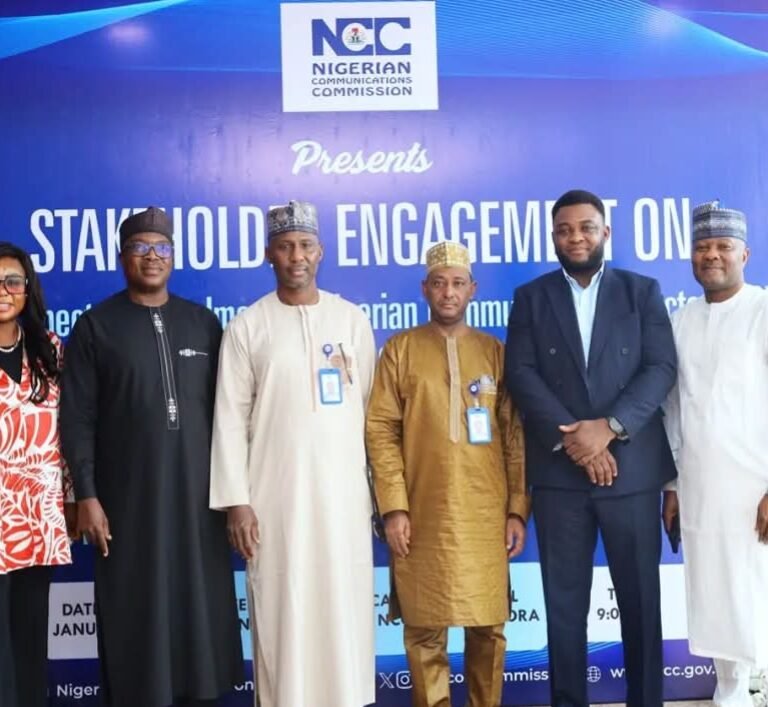
By Uriel Ihotu
The Executive Vice Chairman of the Nigerian Communications Commission (NCC), Dr. Aminu Maida, has emphasized the need for a revised Nigerian Communications Act that not only addresses current challenges but also anticipates future opportunities, positioning Nigeria as a leader in the global digital economy.
Dr. Maida made these remarks during the opening ceremony of the Colloquium on the Nigerian Communications Act, 2003, organized by the House of Representatives Committee on Communications at Sheraton Hotel, Ikeja, Lagos, on Tuesday.
He described the event as a significant milestone, made possible through the strong collaboration between various arms of government, highlighting the synergy in regulating and managing Nigeria’s communications sector.
“This gathering provides an invaluable opportunity for stakeholders to reflect on our past achievements and collaborate in shaping the future of communications in Nigeria,” Maida stated. “Our focus today—the Nigerian Communications Act of 2003—represents a pivotal moment in Nigeria’s telecommunications evolution. It’s time to assess its impact, address its shortcomings, and set a bold course for a digitally inclusive and globally competitive Nigeria.”
Dr. Maida reflected on the enactment of the Nigerian Communications Act over two decades ago, which ushered in a new era for the country’s telecommunications sector. The Act established a transparent and independent regulatory framework, empowering the Commission to oversee a sector that has become crucial to Nigeria’s economic and social development.
“The growth in telecommunications services and their transformational impact on the sector is a direct result of this bold legislative initiative,” he continued. “The numbers are undeniable: mobile subscriptions have surged from less than 300,000 in 2001 to over 150 million today. Internet penetration has expanded, connecting millions to the digital economy, while the telecommunications sector now contributes approximately 13.94% to Nigeria’s GDP as of Q3 2024.”
He also highlighted the innovations driven by the Act, including mobile banking, e-commerce, digital communications, and digital education, which have reshaped how Nigerians live, work, and interact. These achievements reflect the vision of the Act’s creators, the resilience of industry players, and the trust of Nigerian consumers.
However, Maida acknowledged that while these milestones are worth celebrating, the telecommunications sector is not without its challenges. “Progress is not a destination, but a journey,” he noted. “The global telecommunications landscape is undergoing a seismic transformation driven by disruptive technologies such as 5G, artificial intelligence, quantum computing, the Internet of Things, and blockchain. These technologies offer immense opportunities, but they also present significant challenges.”
He pointed out that while urban centers enjoy robust connectivity, rural and underserved areas still face limited access, underscoring the ongoing digital divide. Inadequate infrastructure, including power supply issues and high right-of-way costs, continue to hamper network expansion. Cybersecurity threats are also on the rise as Nigeria’s reliance on digital platforms increases.
Moreover, the economics of the telecommunications industry are under strain. Operators are grappling with rising operational costs, inflation, currency volatility, and the significant capital required for next-generation technologies. Consumers, particularly in low-income areas, face affordability challenges despite rising demand for faster, cheaper, and more reliable services.
“These challenges highlight a crucial truth,” Maida said. “While the Nigerian Communications Act of 2003 was visionary for its time, the realities of 2025 necessitate a re-examination of its provisions to ensure they remain relevant.”
The Colloquium, Dr. Maida concluded, is a timely and strategic platform to evaluate the Act’s strengths, identify its gaps, and reimagine its role in driving Nigeria’s digital future. He reiterated the Commission’s commitment to fostering an environment conducive to innovation, competition, and consumer empowerment.
In his closing remarks, Maida thanked the House of Representatives Committee on Communications for organizing the Colloquium and applauded the contributions of all stakeholders, including operators, consumer advocates, academics, and technologists. He stressed the importance of collaboration in building a telecommunications sector that is the envy of many and reaffirmed the Commission’s readiness to work with the National Assembly, industry stakeholders, and international partners to implement actionable reforms.
“As we engage in today’s discussions,” he urged, “let us be bold in our ideas, pragmatic in our solutions, and unwavering in our commitment to the Nigerian people. Together, we will lay the foundation for a digital Nigeria that empowers every citizen, fosters economic prosperity, and secures our place in the global community.”








